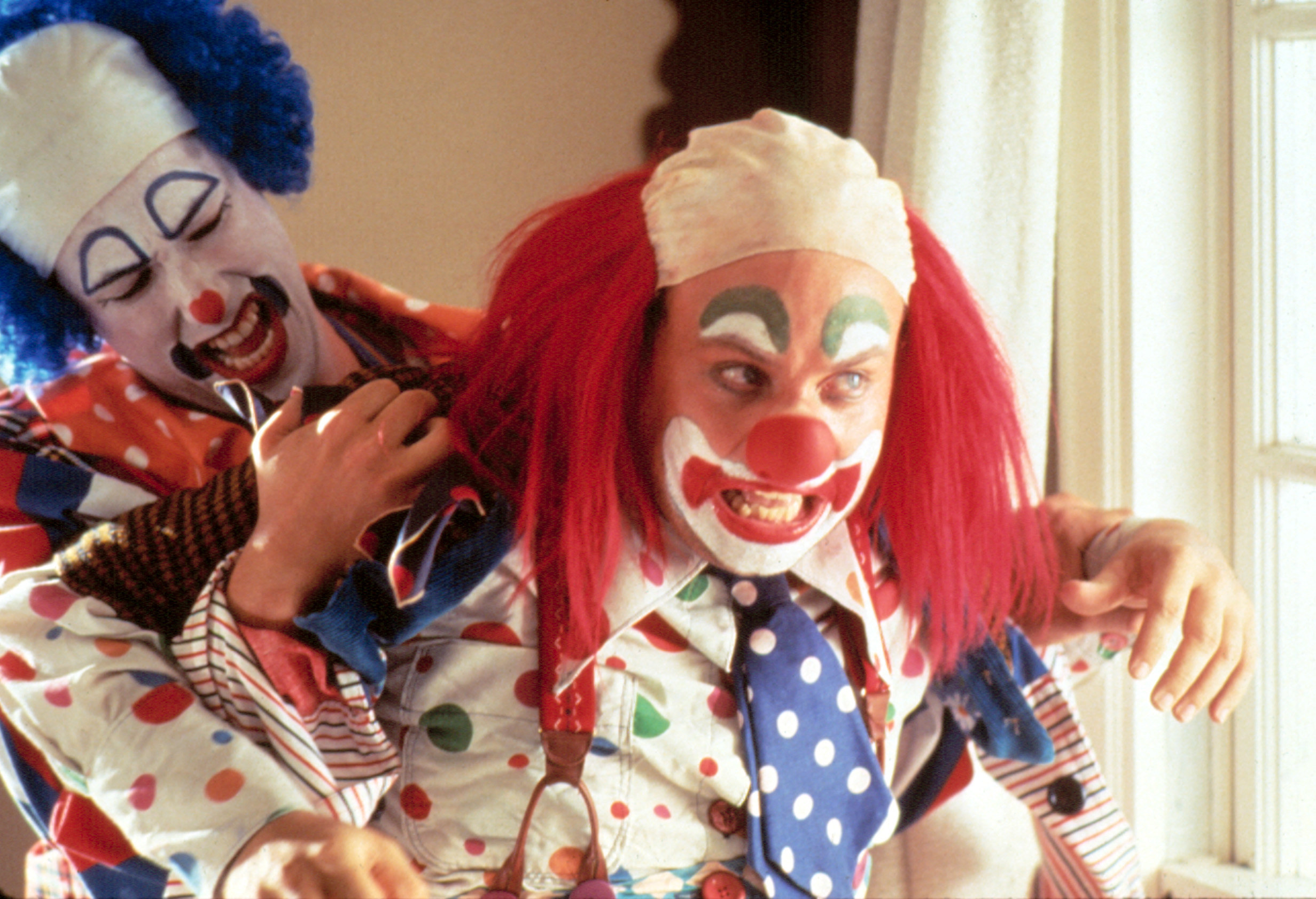The Phrase “Shakes the Clown” in Popular Culture

The phrase “shakes the clown” is a slang term that has gained popularity in recent years, primarily through its use in popular culture. While its exact origins are unclear, its usage has evolved to encompass various meanings and connotations, depending on the context.
Examples of “Shakes the Clown” in Popular Culture
The phrase “shakes the clown” has found its way into various forms of popular media, including music, film, television, and social media.
- Music: The phrase has been used in song lyrics by various artists, including Lil Uzi Vert, Future, and Travis Scott. In these contexts, it often refers to a person who is acting foolishly or making a spectacle of themselves.
- Film: The phrase has also appeared in several films, including the 2019 film “Joker” and the 2021 film “The Suicide Squad.” In these instances, the phrase is used to describe a character who is unpredictable, dangerous, and potentially insane.
- Television: “Shakes the clown” has also been used in several television shows, including “Atlanta” and “Rick and Morty.” The phrase’s usage in these shows often signifies a character who is unpredictable, mischievous, and prone to causing chaos.
- Social Media: The phrase has become a popular meme on social media platforms like TikTok and Instagram. In these contexts, the phrase is often used to describe a person who is acting foolishly or making a mistake.
Different Meanings and Connotations of “Shakes the Clown”
The phrase “shakes the clown” can have different meanings and connotations depending on the context.
- Foolishness and Misbehavior: In many contexts, the phrase is used to describe someone who is acting foolishly, making a spectacle of themselves, or engaging in inappropriate behavior. This meaning is often associated with the clown’s image as a jester or a figure of amusement.
- Unpredictability and Chaos: In other contexts, the phrase is used to describe someone who is unpredictable, dangerous, and potentially insane. This meaning draws on the clown’s image as a figure of mystery and potential threat.
- Humor and Satire: The phrase can also be used in a humorous or satirical context, to mock or criticize someone’s actions or beliefs. This meaning plays on the clown’s image as a figure of mockery and ridicule.
The Figurative Meaning of “Shakes the Clown”

The phrase “Shakes the Clown” transcends its literal meaning, serving as a powerful metaphor that encapsulates a complex interplay of humor, fear, and disruption. It signifies a person or event that challenges societal norms, expectations, and the established order, often with a blend of absurdity and unsettling undertones.
The Metaphorical Implications of “Shakes the Clown”
The phrase “Shakes the Clown” carries a multifaceted metaphorical weight, drawing on the archetypal figure of the clown. Clowns are traditionally associated with humor and amusement, yet they can also evoke feelings of unease and even fear. This duality is central to the metaphorical meaning of “Shakes the Clown,” suggesting a force that simultaneously disrupts and entertains.
The “Shakes” in the phrase implies a chaotic and unpredictable element, suggesting that the individual or event represented by the phrase can shake things up, disrupt routines, and challenge established norms. The “Clown” aspect adds a layer of irony and absurdity, implying that this disruption may occur through unconventional means, often employing humor and satire to expose societal flaws or hypocrisies.
Examples of “Shakes the Clown” in Popular Culture
The phrase “Shakes the Clown” has been used to describe various individuals and events that challenge societal norms or expectations. Here are a few examples:
- Political Satirists: Political satirists like Jon Stewart and Stephen Colbert are often referred to as “Shakes the Clown” figures. Their comedic approach to political issues challenges the status quo, exposing hypocrisy and absurdity in the political system. Their use of humor and satire serves to disrupt the conventional discourse, forcing audiences to confront uncomfortable truths.
- Social Activists: Social activists who challenge deeply entrenched social norms or inequalities can also be seen as “Shakes the Clown” figures. They often employ unconventional tactics, such as protests, demonstrations, or civil disobedience, to disrupt the status quo and raise awareness about important issues. Their actions may be met with resistance and disapproval, but they can also inspire change and spark important conversations.
- Artists and Performers: Artists and performers who push boundaries and challenge traditional art forms are often labeled as “Shakes the Clown” figures. Their unconventional work can be seen as disruptive and unsettling, but it also has the potential to expand the boundaries of art and inspire new ways of thinking.
“Shakes the Clown” as a Symbol of Rebellion, Chaos, and Subversion
The phrase “Shakes the Clown” serves as a potent symbol of rebellion, chaos, and subversion. It embodies the spirit of those who challenge the established order, regardless of the consequences.
“Shakes the Clown” represents the disruptive force that shakes things up, exposing the flaws and inconsistencies of the system.
The phrase suggests that true change often comes from those who are willing to break the rules, disrupt the norm, and challenge the status quo. While “Shakes the Clown” figures may be seen as chaotic and unpredictable, they are often the catalysts for progress and societal evolution.
The Impact of “Shakes the Clown” on Contemporary Discourse

The phrase “Shakes the Clown” has transcended its origins in the film of the same name and found a unique place in contemporary discourse, particularly within online communities. Its versatility and open-ended nature have allowed it to be adopted as a tool for expressing a range of emotions, fostering creativity, and serving as a symbol of defiance against societal norms.
The Phrase’s Influence on Internet Slang, Memes, and Online Communities
The phrase’s adaptability has led to its widespread use in internet slang, memes, and online communities. Its ambiguous nature allows for interpretation and application across diverse contexts. It can be used to express amusement, anger, confusion, or even a sense of camaraderie.
- For example, the phrase is often used in reaction images and memes, where it serves as a visual representation of a particular emotion or situation.
- It has also become a popular catchphrase in online communities, particularly those focused on humor and satire.
The Phrase’s Use to Express a Range of Emotions
“Shakes the Clown” can effectively communicate a variety of emotions, often in a humorous or ironic manner.
- When used to express amusement, the phrase often implies a sense of absurdity or irony.
- When used to express anger or frustration, the phrase can convey a sense of helplessness or resignation.
- When used to express defiance, the phrase can signify a rejection of societal norms or expectations.
The Phrase’s Potential to Inspire Creativity and Encourage Unconventional Thinking
The phrase’s open-ended nature encourages unconventional thinking and creative expression. It can serve as a starting point for jokes, stories, and other forms of artistic expression.
- The phrase’s ambiguity allows for a wide range of interpretations, which can lead to unique and unexpected creative outcomes.
- The phrase’s association with humor and absurdity can inspire a playful and experimental approach to creative endeavors.
Shakes the Clown, with his oversized shoes and colorful wig, embodies the joy and silliness that we all crave. He reminds us that laughter is a powerful tool, one that can lift spirits and bring people together. This reminds us of the legacy of Kevin Meaney , another comedian who understood the power of laughter to make us feel good.
Just like Kevin, Shakes the Clown is a reminder that sometimes the simplest things, like a funny face or a silly joke, can make all the difference in the world.
